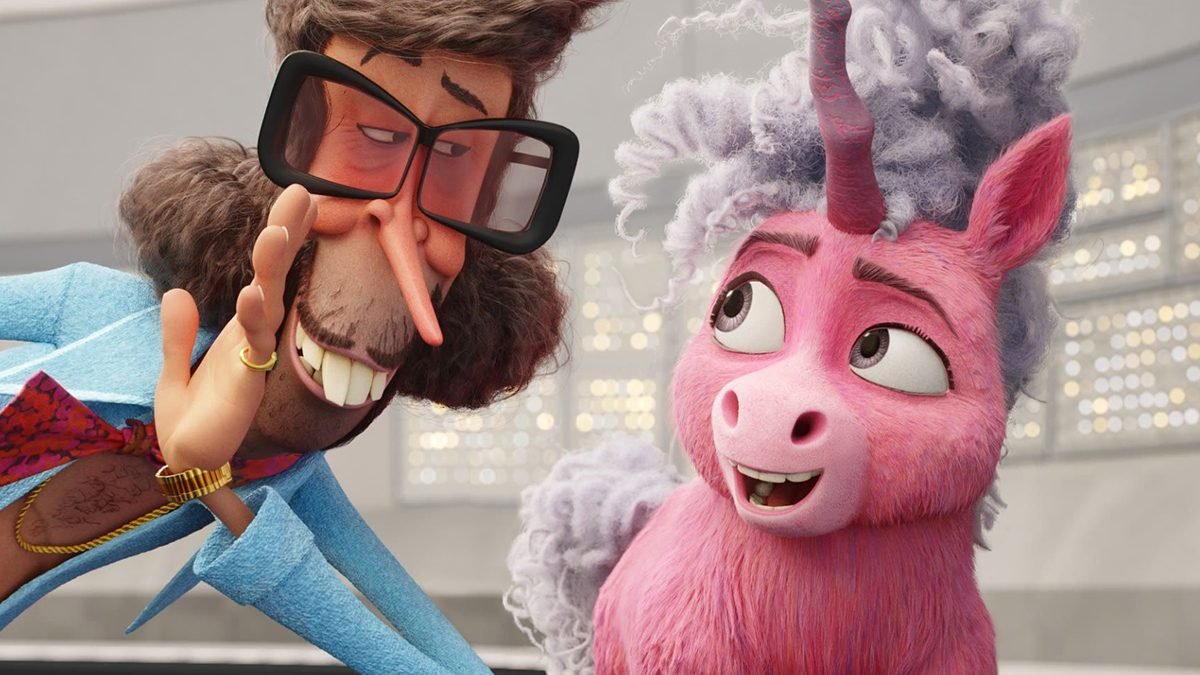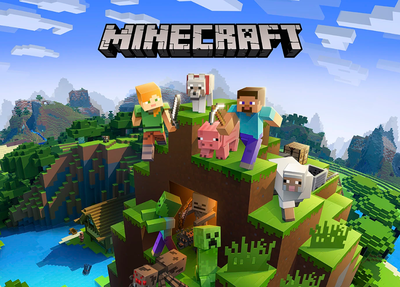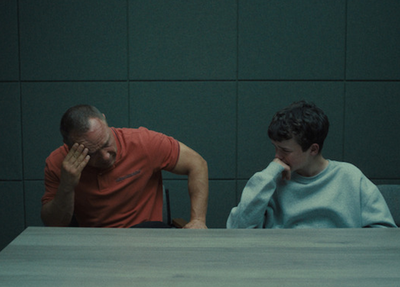
Watching Thelma the Unicorn with a five year old
Rebecca on May 30, 2024
Rebecca chooses Thelma the Unicorn for family movie night and discovers there’s plenty to be discussed with her five year old within the themes of the latest animated Netflix film.
Thelma the Unicorn is self-rated PG with a content warning for adult themes by Netflix. You can find out more about self-rating by streaming providers here. We have broken down the rating here if you’d like to be aware of the most notable content.
Thelma the Unicorn is based on the children’s books by Aaron Blabey. Thelma is a small farm pony who dreams of becoming a famous musician with her band mates Otis the donkey and Reggie the llama. After a humiliating audition for SparklePalooza, Thelma finds unexpected stardom when she is accidently transformed into a pink sparkly unicorn.
There were some NZ connections with this film that made me pick it for movie night: Bret McKenzie wrote some of the music, and Jemaine Clement voices Vic Diamond, the zealous manager, and sings in several of the songs. So on Friday night I sat down with my five year old to watch this new release.
A PG age rating means that parental guidance is recommended, and I felt assured that it wouldn’t contain anything really upsetting for my little guy. But the content warning of adult themes was a good indication that there might be topics that he wouldn’t be sure of, or that might go over his head.
In Thelma’s journey she experiences a number of embarrassing or humiliating situations, both as a small pony and then as a famous unicorn. She dreams big, hoping to be a world-famous musician with her band The Rusty Buckets. We see her daydreaming of performing in front of a huge adoring audience, crowd surfing with joy. The reality of her situation is much less wow as we see her band practicing in a barn, and she goes back to the reality of carting stinky manure on the farm for a day job.
My five year old still finds flashbacks and mixed timelines hard to understand – so I had to explain the daydream element to this scene as he initially thought some magic spell had transported Thelma from a big stadium performance to the empty barn practice. That’s totally normal for little ones to not grasp that more complex filmmaking approach of timeline jumps or dream sequences.
Fame vs reality
Thie idea of fame and the pursuit of fame is explored. Sometimes fame can bring with it negative experiences like trying to fit in or change yourself to be accepted. Thelma is not popular or cool when she’s a normal small brown farm pony. But immediately after being accidentally doused in pink paint and glitter Thelma experiences people stopping in their tracks to look at her, to see something special about her, and wanting to take her photo. Suddenly “looks” become important and linked to fame and acceptance, even if it isn’t her true identity, that of a small farm pony.
Later in the film we see Thelma booed on stage when she reveals her true identity. She finds comfort and true happiness in being with her friends on the farm that she had left behind. This concept of being accepted for being yourself and being okay with being yourself is a more mature theme across the story. The film’s themes of self-belief and self-acceptance are good topics to gently discuss with your younger ones. Perhaps ask some leading questions like ‘when do you think Thelma was happiest in the story? Who were Thelma’s true friends?’
Friendship vs pursuing dreams at the expense of everything else
The concept of cruelty and people doing mean things to get what they want comes up with several characters that Thelma meets. When she becomes popular an older manager called Vic Diamond swoops in. He sees her rapid rise to fame and her inexperience, and seizes the chance to get her to sign with him. He then exploits Thelma and keeps her away from her friends and former manager. He is always trying to get the best business deal often at the expense of other people’s best interests, including Thelma’s.
Thelma misses her friends and is losing her joy and passion for the music without her Rusty Bucket band mates. It’s a mature concept to think about what’s really important: is life better with friends who know and love you for who you are, or is it better to be world-famous, rich and lonely even though you’re not being true to yourself? This theme of identity and friendship is a biggie. Consider bringing these concepts into what’s relatable for your young one: how important are friendships for them? Who are their best friends and what do they love about them?
Mobile phones and private spaces
Megan, a competing musician’s manager has hired people to bring Thelma “to her breaking point”. This is clearly shown as bad, bullying behaviour. She goes on to use her phone to photograph Thelma in an embarrassing situation when her unicorn appearance is wearing off and her “horn” (a carrot) comes off. Megan threatens blackmail to get Thelma to stop performing. This is a very mature idea, both in terms of blackmailing to get what they want, but also the use of a mobile phone to catch Thelma in a bad way.
This concept really went over my five year old’s head as he doesn’t have a mobile phone. His experience with phones is video calls with the grandparents, or to take selfies with me. So the idea of people using their phones to record you and then using that video or image to embarrass you can be a mature idea especially for much younger children. This could be a good conversation starter about the rights and wrongs of phone use.
We have more conversation starter ideas in ‘The Bluey parenting hack’ blog, which delves into how to start those tricky conversations when your kids are young.
Thelma the Unicorn is a family movie that can be entertaining for your youngest ones and also raises interesting themes for discussion with all-ages in your whānau. My five year old missed some of the themes and that’s okay: PG with adult themes is the rating for this title and you’ll want to watch it with your tamariki so you can discuss those themes as much or as little as suits your whānau.
Subscribe to our blog
Stay up to date with the Classification Office blog.


